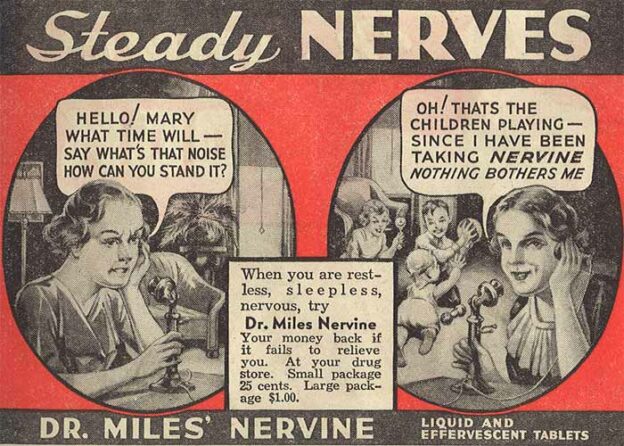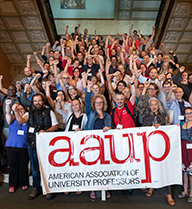An opinion column I wrote for the Boston Globe appeared on March 21 and can be read here.


An opinion column I wrote for the Boston Globe appeared on March 21 and can be read here.

A famous palindromic word in the Torah is venasnu, in the second pasuk in the parsha. It means “and each man must give,” in the context of contributing the machatzis hashekel, which the Torah describes as “monetary atonement for [the giver’s] life” (Shemos, 30:12). The word reads the same forward and backward.
The Baal HaTurim sees that as a hint to the Gemara’s contention that one should “tithe so that you will become wealthy” (Taanis, 9a), that giving charity will result in the giver’s benefit .
The Vilna Gaon discerned a somewhat different message in the palindrome, namely, that life plays havoc with fortunes, and therefore giving tzedakah to others will merit others’ supporting us or our descendants in our times of need. What goes around, in other words, comes around.
He cites the Gemara in Shabbos 151b:
“Rabbi Ḥiyya said to his wife: When a poor person comes to the house, be quick to give him bread so that they will be quick to give bread to your children. She said to him: Are you cursing your children?
He said to her: the yeshiva of Rabbi Yishmael taught that galgal hu shechozer ba’olam – it is a ‘cycle that repeats in the world’.”
In other words, wealth and destitution come and go, in individual lives and in family lines. Great fortunes are made and lost, and rags can lead to riches.
Media mogul and billionaire Oprah Winfrey was born into an impoverished family in Mississippi; she went to college on a scholarship.
Socialite Jocelyn Wildenstein, who inherited billions from her art dealer husband, died dependent on $900 Social Security payments.
And those people’s descendants might find themselves in entirely different statuses from their antecedents. Wealth recycles, something to remember when approached by a beggar.
© 2025 Rabbi Avi Shafran

No matter our desire to embrace a country or leader as a truly reliable friend, we all — especially we Jews — do well to remember that there may not be any such thing, a truism about which Chazal warned us millennia ago.
To read what evoked that thought, please click here.

I’ve long fixated on a phrase Yisro uses. When he rejoins Moshe and joins Klal Yisrael, he declares why, although he had been a guru in countless cults, he came to the conclusion that “Hashem is greater than all the powers.”
“Because,” he explains, “of the thing that [the Mitzriyim] plotted against them [i.e. Klal Yisrael]” (Shemos 18:11).
Rashi, in explanation, cites the Mechilta: “… the Mitzriyim thought to destroy Yisrael by water and they were themselves destroyed by water.” And he quotes Rabi Elazar (Sotah 11a), punning on the word “plotted,” which can also mean “cooked,” that “in the pot that they cooked up they ended up being cooked.”
What strikes me is that it is irony – here, that the means the Mitzriyim employed to kill Jews ended up as the agent of their own downfall – that moves Yisro to perceive the Divine hand.
It is such a Purim thought. In Megillas Esther, too, although Hashem’s name is entirely absent, His hand is perceptible through the irony that saturates the story: Haman turns up at just the wrong place at just the wrong time, and ends up being tasked with arranging honors for his nemesis Mordechai. All the villain’s careful planning ends up upended, and he is hanged on the very gallows he prepared for Mordechai. Haman’s riches, according to the Book of Esther, were given to Mordechai. V’nahafoch hu, “and it was turned upside down.”
Amalek may fight with iron, but he is defeated with irony.
Shortly after Germany’s final defeat in WWII, an American army major, Henry Plitt accosted a short, bearded artist painting on an easel in an Austrian town and asked him his name. “Joseph Sailer,” came the reply.
Plitt later recounted: “I don’t know why I said [it, but] I said, ‘And what about Julius Streicher?’” – referring to the most vile and antisemitic of Nazi propagandists.
“Ya, der bin ich,” the man responded. “Yes, that is me.” And it was.
A reporter later told Major Plitt that, had only “a guy named Cohen or Goldberg or Levy… captured this arch-anti-Semite, what a great story it would be.”
Major Plitt, in fact, was Jewish.
Stars and Stripes in late 1945 reported that Streicher’s possessions were converted to cash and used to create an agricultural training school for Jews intending to settle in Eretz Yisrael.
And when Streicher was hanged at Nuremberg in 1946, his final words, shouted just before the trap sprang open, were: “Purim Fest 1946!” – a rather odd thing to say on an October morning.
© 2025 Rabbi Avi Shafran

| Have you heard of Perkycet®️? No? Well read all about it, and about drug ads, here. |

It’s all too easy to disassociate the beginning of a parsha from the end of the preceding one. But Rav Shlomo Yosef Zevin, in LaTorah UlaMoadim, sees Hashem’s declaration at the opening of Vo’eira as connected to Moshe’s question toward the end of parshas Shemos. That question was (Shemos 5:22) “Why have You treated this nation badly?” And Elokim’s response (6:2) is “I am Hashem.”
Rav Zevin compares the apparent question/answer disconnect here with what transpires in Ki Sisa, when Moshe asks Hashem to “Let me know Your ways” (33:13) and is responded to with “You will see My back but My front will be unseen” (33:23).
What gives?
In both cases, explains Rav Zevin, the response expresses the reality that we cannot perceive justice, or even any sort of sense, with our limited purview of history. We are like a person first seeing the “burial” of a wheat kernel and its decay in the ground without having ever seen the stalk of wheat that emerges as a result, and the loaf of bread to which it will eventually contribute.
Elokim – the midas hadin, strict justice, name of Hashem – tells Moshe to rest assured that the din he perceives is not detached from “I am Hashem” – the sheim havaya that implies rachamim, benevolence. The din is but a prelude to rachamim, and the redemption of the Jews is at hand.
And the ultimate redemption, too, as hard as it may be to spy, is forthcoming no less.
© 2025 Rabbi Avi Shafran

While parshas Shemos (“Names”) does begin with names, those of the shevatim, and introduces the naming of Moshe, it is ironic that, when the parsha’s narrative begins, anonymity seems the rule.
“A man went out from the house of Levi and took a daughter of Levi” (Shemos, 2:1). We know the references are to Amram and Yocheved, but their names are not provided. Likewise with Moshe’s sister (2:4) whom we know to be Miriam but is unnamed. Same with Doson and Aviram, who are named in parshas Korach (Bamidbar 16) but not here in Shemos. And “the daughter of Par’oh,” we know, from Divrei Hayamim, was named Bisya. But in our parsha she has no name .
And what names are introduced for other dramatis personae seem pedestrian in their meanings. See Rashi 1:15 on Shifra and Puah.
What occurs as a possible message in the abundance of namelessness is that even simple people, those who haven’t established any sort of “name” – fame or distinction – for themselves, are capable of accomplishing great things; of, by their choices and actions, “making a name” for themselves. Every Tom, Debby and Harriet, in other words, can play a role as pivotal as those played by Amram, Miriam and Bisya. What matters isn’t one’s credentials but, rather, one’s actions.
And the idea that we should not feel limited is something the Kotzker famously commented on with regard to the Midrash stating that Bas Par’oh’s hand, extended to baby Moshe, elongated to reach him. She apparently reached out for something that was well beyond her reach, which is why the miracle had to happen. And yet she reached out all the same.
When one is seeking to do good, she (or he) should not feel constrained by “reality,” be it physical distance or any lack of credentials.
© 2025 Rabbi Avi Shafran

Much of the “pro-Palestinian” (read: anti-Israel—and, more often than not, anti-Jew) activism has been angry, crass, disruptive and destructive.
And, at least in one recent case, counterproductive.
To read about it, click here.

It’s easy to resent being mistreated.
It’s also misguided to be resentful.
Yosef reassures his brothers that he harbors no ill will for their having plotted against him. “Although you intended me harm, Elokim intended it for good” (Beraishis 50:20), he tells his siblings, echoing his earlier words “It wasn’t you who sent me here, but rather Elokim (ibid 45:8).
Those statements, Rav Yeruchom Levovitz, the famed Mir mashgiach, explained, were not mere polite, comforting words of forgiveness. They meant precisely what they say: that Hashem was ultimately the reason for his having been mistreated and sold into servitude. [Note the use of “Elokim” in both psukim, indicating din, pure justice]. It was part of a plan.
In his Daas Torah, Rav Yeruchom writes that Yosef was telling his brothers that they really had nothing to do with his life’s trajectory, that they had essentially been mere tools that were used in order to bring him to who he had become, the viceroy of Mitzrayim.
And so, Rav Levovitz continues, every person who feels wronged by another should not automatically be angry at his oppressor, since he is where Hashem wants him to be. Would anyone, the mashgiach asks, think to rail against a stone that fell on him? The oppressor is but a stone, the means by which Hashem’s plan for the injured person is furthered.
It’s an attitude vital for living a Torah-informed life.
“Take this rule,” says Rav Yeruchom, “firmly in hand.”
© 2025 Rabbi Avi Shafran

What do you think represents an “egregious threat to bedrock principles of academic freedom”?
The kidnapping and gagging of a professor? An administrator’s cancellation of the professor’s class? . A warning that he’d be fired unless he taught a certain point of view? Three strikes, you’re out.
To see the answer, click here.